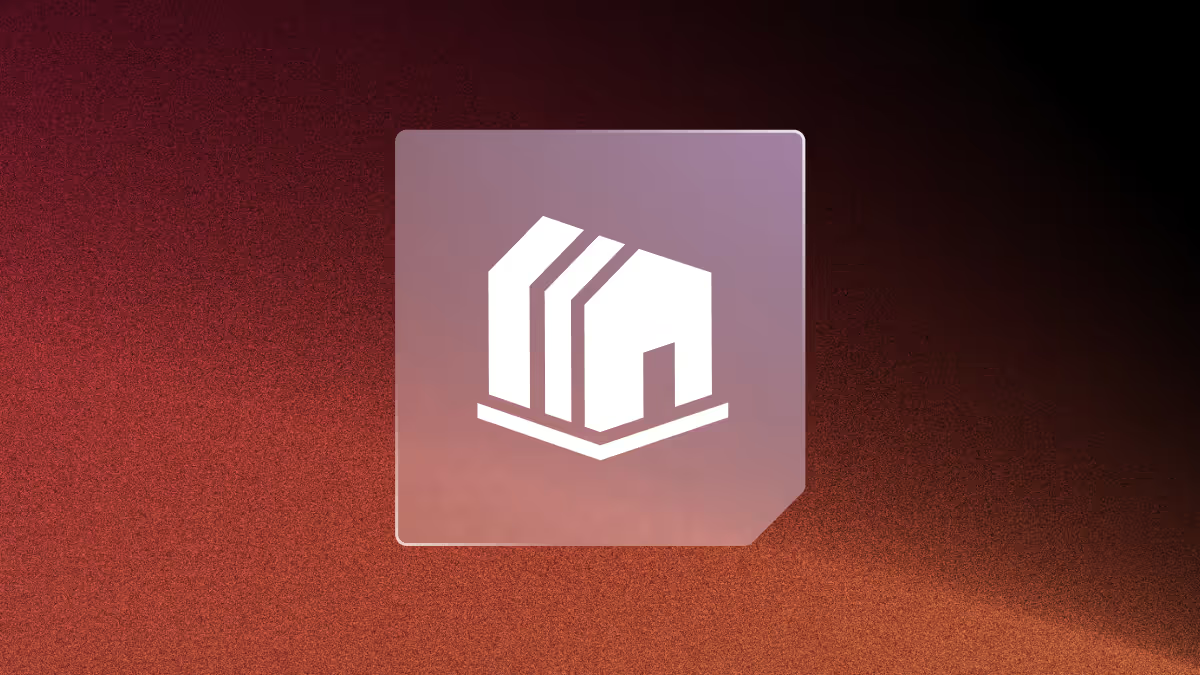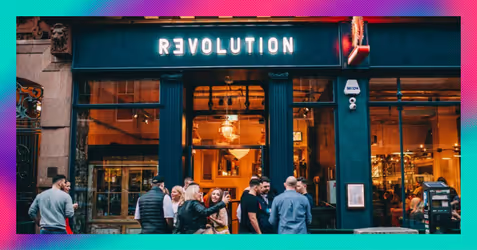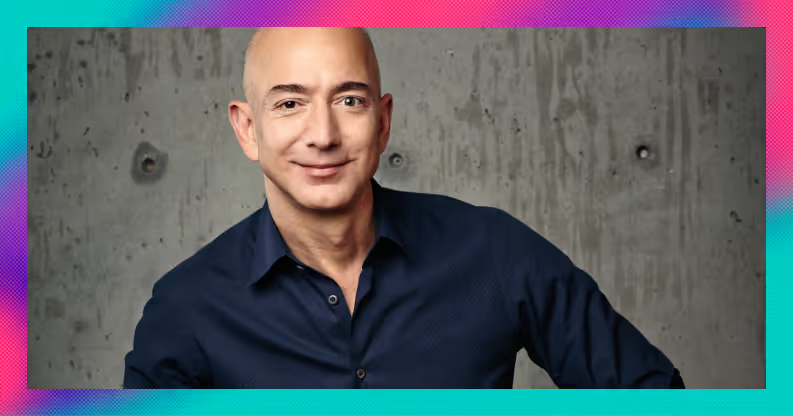Today on the Invest Hub we’ve got an interview with Avinash Rugoobur, president and chief strategy officer of electric vehicle firm Arrival.
We spoke a bit about Arrival’s aims, its journey to the stock market via a SPAC and what the future holds for the firm’s micro factories.
Have a watch or, if you prefer reading, peruse the transcript below. We've edited the text for brevity and so that it's easier to read.
What do you think about the investment case for Arrival? Let us know on the community forum:

Transcript
Dan Lane:
Hello and welcome to this Freetrade company interview, I'm Dan Lane. Before we get started, can I just remind you to sign up for our Honey newsletter to find out what's happening in the markets every single day, including Saturday. With that said, let me introduce our guest today, President of Arrival, Avinash Rugoobur. Avinash, thanks very much for coming on.
Avinash Rugoobur:
Thanks for having me, Dan.
Dan Lane:
So I thought we'd just kick off, for anyone who hasn't caught up with Arrival and doesn't know what the company is, who are you and what are you trying to achieve?
Avinash Rugoobur:
Yeah, so I think, off the bat what Arrival's doing is creating electric vehicles that are at a similar price point to diesel equivalents. So, that is important because that's when the commercial vehicle segment, which we are currently focused on, will switch over to full electric. When you can make a purchase decision where you can buy an electric vehicle at a similar price to diesel, with all the better attributes and lower total cost of ownership, we believe that's the inflection point for rapid adoption of EVs. To do that we are vertically integrated, so we develop all of our own technology. We've been at this for six years. We have over 1600 employees, headquartered in the UK but we're also all around the world. And so, you know, we've got layers of tech, we design and develop our own components, our own composite material, which is fully recyclable that forms the body.
We have our own skateboard platform that lets us build different variants and we produce it all in a micro factory, which is a game-changing production method that's really, in a lot of ways, the opposite to what's been done over the last hundred years where we produce vehicles in low capex, low footprint, micro factories that are 20,000 odd square metres located in existing warehouses, that you can convert to production facilities within six months. And that's important because you can produce vehicles, you know, the capex is around $50m USD dollars, you can produce vehicles and be profitable at lower volumes, but you can also use the micro factory is actually like a product for us. And we can produce multiple vehicles from that micro factory as well. So it's really just a totally new way, a reinvention of how electric vehicles are produced.
Dan Lane:
Excellent. And I think you're concentrating more on the commercial side of things, correct me if I'm wrong. What's been the decision there?
Avinash Rugoobur:
Yeah. It's because if you think about the commercial vehicle segment, it's actually been underserved for so long. And if you look at the vans and the buses, and a lot of what's out there already, it's, you know, it's pretty old tech, that's just being sort of continuously improved, but it hasn't kept up to speed with where technology is today. That's on software, that's on robotics, that's on how you use data, It's user experience. And so part of that is that production method that I was mentioning earlier, you know, the typical production processes, a fixed line, all of the parts come to the line, it's at a fixed speed, and you have to really produce hundreds of thousand vehicles to be profitable. Really low margin businesses, that is the typical approach. But with Arrival because we sort of broke that kind of need for economies of scale and we can produce vehicles using these technologies, like I like to think of Arrival, not as producing just best in class EVs, but as producing the systems that produce best in class EVs. So we can do anything in that commercial vehicle segment.
We've got the bus that we've announced, we're doing a trial with First Group later in the year, we've got the electric van, we've got a small vehicle platform that we've announced and it's focused because the commercial vehicle segment, as I mentioned, it's been under served. The typical industry can't cope with the requirements and the configurations that are needed in those products. Again, because of this manufacturing system it really is focused on uptime and utilisation, and it's a place where electrification makes sense now. You know, we've got a growing, you take e-commerce and logistics, the growing market with COVID but even before that, it's an area that really needs to go green and needs to happen now. And there isn't a product that can compare to an Arrival product. So it was a great first market for us to focus on. And even things like infrastructure, you know, these vehicles all returned to a depot. That's a simpler problem to solve than in the retail segment where basically the vehicles can be anywhere, and charging anywhere overnight, whereas the Depot is a concentrated environment. And so, operationally, these folks really understand what the use of the vehicle is. It's all about the function. And so it was a perfect place for us to start our focus on.
Dan Lane:
You touched on battery and kind of fuel cell technology there. I mean, that kind of space is huge for Freetrade investors at the minute. Is range something you think about when it comes to vehicles? That's been quite a hot topic in the broader industry.
Avinash Rugoobur:
Yeah, so we're using battery electric vehicles, that's the beginning of it, but our technology, as I mentioned earlier, because we designed our own components, they're designed to be upgraded over time. So if battery tech gets better or hydrogen fuel cell makes sense we can actually switch that powertrain a little bit to any sort of zero emission clean energy source, but in terms of range, I mean, there's a few things to focus on. One is the energy density that get from the battery itself. Then there is the capacity that you can put into a vehicle. So if you think of an Arrival vehicle, the way we've done our battery module, instead of a pack, we actually have modules that you can just add as many modules as you need, kind of like Lego, right? You can just literally add capacity as needed.
That's important to the commercial vehicle segment because some vehicles do 300 kilometres. You know, some vehicles do under 100 kilometres because some are only doing the city routes. And if you can size the battery, like we tend to at Arrival, the customer only pays for the capacity that they need, because the battery is the most expensive part of the vehicle. And then the other way to think about the range is also the weight. So with our composite materials, you know, being such lightweight and the way our vertical integration allows us to optimise each one of the components, the composite body, the skateboard platform, you know, it's designed to be lighter and more efficient. So for example, our bus, depending on the configuration, about eight to nine tons, uh, anything else out there is around 13 tons. So that's significantly different. Our van is a full-time gross vehicle weight, with a two time payload. So, you know, two ton vehicle, approximately two ton payload. So when you have that sort of weight and battery efficiency, and the fact that you can size the capacity, range isn't really a concern with the way we've done it.
Dan Lane:
In preparation for this, I looked at some of your videos online. I would suggest to anyone to have a look at those, they're absolutely fantastic; to have a look at actually the sustainability and the longevity of the products that you're making. Coming in from some of our investors are questions around, you know, it's a really exciting time for you guys coming to the market through a SPAC. Can you take us through maybe a reason why you would have done that instead of kind of the traditional IPO process?
Avinash Rugoobur:
Yeah. Yeah. And I think it's an important question. So if you look at, if I go back to the history of Arrival, so it was founded six years ago and it was actually self-funded through the founder, Denis Sverdlov (and CEO), his own investment company. So he's self-funded the company up until about two years ago, where we had €100m investment from Hyundai Kia. We also had an investment from UPS and most recently we had about $100m from BlackRock. And so we actually were well-funded. We had developed a technology for the last six years. So the technology has matured, you know, our components of being driven in, in on road. You know, we've got a prototype vehicles right now, and trial vehicles being built. So actually going on the road. We've got the composite materials, all those composites that you refer to in the video, they're coming off our own production facility.
The thing I mentioned earlier - 1600 people, 90% of those are engineers, 50% are software and the other 50 are between like robotics and automotive, traditional automotive. When you look at the maturity level of Arrival, the order book and the price point that we're at, the fact we've got two micro factories, we've got one in Bicester in the UK, and we've got one in Rock Hill in South Carolina. They're actually being commissioned right now, so the start of production for the bus for example is at the end of this year, the van is next year. We're just at a mature place. And so when we looked at different options, obviously there was direct listing, there's the traditional IPO that you mentioned, there was the possibility to stay private.
It made the most strategic sense for our business because we met a SPAC partner that was really aligned in the mission and vision of Arrival. So CIIG, which is the SPAC partner that we have merged with, or are in the process of basically finalising that. The CEO, Peter Cuneo is the ex CEO of Marvel. He's been on public boards of companies for a long, long history of guiding companies through different phases. He's actually joining our board and he's going to be actually the chairman of that board. So he and his team were really in line with the vision of what we're doing. That was really important that it wasn't just, you know, a financial transaction, that it was a way of expanding the capability of Arrival, not just in the UK, but also in the US and other places around the world. And then with the access to capital, it's all about scaling. So, you know, we'll be scaling out the micro factories and bringing the products to market later this year. So, you know, when we looked at the different options, the SPAC made the most sense for us.
Dan Lane:
And the scaling, I'm really interested in that actually, so, yeah, I mean, through this process, you're obviously getting the synergies with investors that you really fit well with. What does, the near term future look like for Arrival then?
Avinash Rugoobur:
I think most important about any company it's, first of all, it's the team and the talent and the culture. At the end of the day a great team will do great things. So for us, primary focus, number one is always going to be our culture. And then obviously it's the deep technology that we've, that we've developed. It's about bringing those together into packages and for example, the bus and the van and getting those to market now. And so really the focus is on, you know, getting the micro factory scaled out in multiple locations around the world,, starting production later this year, going through the trials. So for example, the bus has a different sales cycle to the van, and there'll be driven on road on route. And that's something that we're heavily focused on - on road usage of the vehicles. And then it's that straight line to start a production and then and then scale. So, and that's where we're hyper focused on, and that's really the key work that that talented team I mentioned is putting all that time and energy into this year.
Dan Lane:
And longer term, is there a desire to go more into the consumer space or is commercial where you see your future?
Avinash Rugoobur:
I can't speak too much about that for now. What I would say is, again, back to focus, it's really important to be focused. So, you know, in the early years that commercial vehicle segment, there's so many different vehicle types within that, that I have the same problems I mentioned earlier, you know, they're underserved, they're not the right fit for purpose, they're too costly, that we can address. The bus, the band, the large van, the small vehicle platform and our small vehicle platform as well for 2023. So that is definitely the initial focus of the company. What I would say is, as I mentioned earlier, the way Arrival has created its technology is, it's not just about the end product, it's the systems that create the end product.
So you've got the micro factory the composites, the components, the skateboard, the software, right? So as I mentioned, half the team's in software. That software, for example, allows the components to be upgraded over time. It's like plug and play, but we do all the control level software. We have all the data and how the vehicles are working. So you can do predictive health monitoring, real-time analysis, the vehicle, you know, all of that is data that can go to the fleet operators and the fleet management tools. So that's our focus and then expanding the ecosystem out into the software and services that come from that. But because those systems can create any type of vehicle the sky is kind of limit in what we're doing, but right now the focus is on the commercial segment.
Dan Lane:
I guess one of the big draws for investors to Arrival on might be its focus on sustainability and this kind of recycling of products. Again, there are videos online showing how these different parts are extremely durable and can be put back into production very, very quickly. How much of that sustainability forms kind of the essence of what you do?
Avinash Rugoobur:
A huge part. I think back to the talent, I think most folks at Arrival are driven by that singular mission of a new transportation ecosystem that's clean, that's not a negative to the environment, that's recyclable, that's sustainable. And so even when we think about, you know, if we go through the technologies, we think about the microfactory, it's all about reducing waste to landfill, reducing the water, reducing the energy footprint, moving to renewable energy where possible to power. When we look at the components, so if you think about these battery, so, you know, some of our components that are like the battery, the human machine interface, inverters, all of that, they're all actually reused. We take the same battery that we put it in the van, it's the same battery module that goes into a bus and same in the small vehicle platform.
Avinash Rugoobur:
But because we can upgrade them over time, we can actually bring them out of the vehicle and, for example, use them for energy storage systems or whatever other use case that we need for those, for those components. So they can be constantly reused. And then the composite, I mean, the composite's incredible, you know, you don't need a paint shop, you don't need a metal stamping plant. You know, paint shop in particular requires a whole bunch of environmental clearances, which we sort of just get rid of completely. And so with our composite, it's readily available materials - polyprop and a glass fibre. It comes together. You mentioned the durability, these are more durable than steel.
So even not just on the recyclable part, it's just on the fact that you're changing them less because they're more durable. That increases the length of use of that part. And so that obviously has a net positive benefit to the environment. But if they are damaged, we can take them back. We can literally break them back down into their raw components and recycle them back into the process. So it's like 100% recyclable. It's, it's, it's really incredible. So when you think about all of those layers of tech, and then you think about the data that we get to optimise the route and help the operator understand their route planning, that can be small and medium enterprises that can be large folks, you know, tools that aren't typically available to this segment. When you think about all of that and the optimisation that's going on. I mean, it's all based on this idea of how can we make this more sustainable for our society.
Dan Lane:
Avinash, I could talk to you about that all day, but I think that's all we have time for now. Listen, best of luck and I really hope we can catch up again soon.
Avinash Rugoobur:
Awesome. Thanks, Dan.
Dan Lane:
Thanks very much.
Make your investments work a little bit harder with one of the UK’s leading commission-free trading apps. Freetrade has transparent charges, no hidden fees and is one of the only brokers to offer fractional shares in the UK.
When you invest, your capital is at risk. The value of your portfolio can go down as well as up and you may get back less than you invest. This should not be read as personal investment advice and individual investors should make their own decisions or seek independent advice. Past performance is not a reliable indicator of future results.If you are unsure whether a product is right for you, you should contact a qualified financial advisor.Freetrade is a trading name of Freetrade Limited, which is a member firm of the London Stock Exchange and is authorised and regulated by the Financial Conduct Authority. Registered in England and Wales (no. 09797821).

.avif)


.avif)








